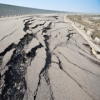Policy News Briefs
After the second session of the 115th Congress began on January 3, two new members were sworn into the Senate – Doug Jones (D-AL) and Tina Smith (D-MN) – bringing the party numbers to 51 Republicans, 47 Democrats, and 2 Independents. There is now a one-vote margin separating the majority and minority for each committee in the Senate, except the Judiciary Committee which has a two-vote margin. House committee assignments have also shifted in the second session, with the Energy and Commerce Committee welcoming four incoming Republican members and new leadership announced in the Science, Space, and Technology Committee.
On January 22, the U.S. Supreme Court unanimously ruled that any challenges to the Waters of the United States (WOTUS) Rule must be filed in federal district courts, not federal courts of appeals. While the Supreme Court’s ruling would have permitted enforcement of the WOTUS Rule in 37 states, the EPA and USACE finalized a rule on January 31 that creates a new applicability date for the WOTUS rule two years from now.
Summary of the relevant notices posted to the Federal Register in January 2018 from various federal science agencies, including the Department of Energy (DOE), Department of the Interior (DOI), Environmental Protection Agency (EPA), National Science Foundation (NSF) and more.
On January 30, the Senate Committee on Commerce, Science, and Transportation held a hearing to discuss the implementation of the American Innovation and Competitiveness Act (AICA). The AICA reauthorized and updated policies at the National Science Foundation (NSF), the National Institute of Standards and Technology (NIST), the White House Office of Science and Technology Policy (OSTP), and other federal science agencies.
President Donald Trump delivered his first State of the Union address to a joint session of Congress on January 30. Despite the administration’s efforts over the past year to make energy independence and dominance a priority, the President only made a few passing remarks relating to energy and natural resource issues during his speech. “We have ended the war on American energy, and we have ended the war on beautiful, clean coal,” President Trump stated, adding that, “We are now, very proudly, an exporter of energy to the world.”
On January 30, the Senate Committee on Energy and Natural Resources held a full committee hearing to address the role of the U.S. Geological Survey (USGS), U.S. Forest Service (USFS), and National Oceanic and Atmospheric Administration (NOAA) in preparing for and responding to natural hazards, as well as the current status of mapping and monitoring systems. Several witnesses testified regarding early warning systems and programs for earthquake, volcano, and tsunami hazards.
President Donald Trump announced his intent to nominate Dr. James Reilly to be Director of the U.S. Geological Survey (USGS) at the Department of the Interior. After a 13-year career at the National Aeronautics and Space Administration (NASA), Dr. Reilly currently serves as a technical advisor on space operations for the U.S. Air Force’s National Security Space Institute in Colorado Springs, Colorado. Dr. Reilly worked for 15 years as an oil and gas exploration geologist with Enserch Exploration, Inc. prior to joining NASA. After 98 presidential nominees were rejected on January 3, President Trump sent a list of several of these nominations back to the Senate on January 8 seeking to fill other key science positions in his administration.
The Senate Energy and Natural Resources Committee held a hearing on January 23 that underscored concerns surrounding the reliability and resiliency of the electrical power system, particularly under certain weather conditions. Experts on the witness panel discussed the overall performance of nation’s grid during recent cold weather events, and potential areas for improvement.
The federal government went into a three-day partial shutdown after the Senate rejected a short-term spending agreement that passed in the House to keep agencies funded past January 19. The shutdown ended when both chambers passed and President Donald Trump signed H.R.195 into law on the night of January 22. H.R.195 funds the government at FY 2017 levels through February 8, extends funding for the Children’s Health Insurance Program for six years through FY 2023, and delays the enactment of three health care related taxes.
On January 19, the House Subcommittee on Energy and Mineral Resources held an oversight hearing to identify and examine regulatory obstacles to offshore geological and geophysical resource surveying on the U.S. Outer Continental Shelf (OCS). The hearing was held in response to a December 2017 Government Accountability Office (GAO) report detailing the permitting process for seismic research and identifies instances of inefficiency and inconsistency in meeting federal internal control standards. Congress is seeking compromises within the regulatory framework that would allow the U.S. to understand our offshore resource potential and ensure national energy security, while also minimizing the negative effects of anthropogenic noise in the marine environment.
According to the National Science Foundation’s (NSF) Science and Engineering Indicators 2018 report released on January 18, the U.S. is currently the global leader in science and technology (S&T), though our nation’s share of global S&T activities is declining as others continue to rise. This year’s report indicates that the U.S. invests the most in research and development (R&D), attracts the highest venture capital, awards the most advanced degrees, and is the largest producer in high-technology manufacturing sectors. However, U.S. leadership in the global science and engineering landscape is being challenged by rapidly developing nations, particularly China.
Secretary of the Interior Ryan Zinke announced his plans for the development of the National Outer Continental Shelf Oil and Gas Leasing Program (National OCS Program) for 2019-2024. The new Draft Proposed Program (DPP) aims to make more than 98 percent of the undiscovered, technically recoverable oil and gas resources in the OCS available for leasing and exploration. Less than a week after release of the DPP, Secretary Zinke informally announced that all of Florida’s coastline would be removed from consideration in the proposed five-year leasing program, prompting questions from various lawmakers and other stakeholders about the apparent preferential treatment given to the state.
The Department of the Interior (DOI) is now mandating review by a political appointee for all grants and cooperative agreements with an individual or aggregate award of at least $50,000 to a nonprofit organization that can legally engage in advocacy or to an institution of higher education, and for all grants or cooperative agreements of over $100,000. In the memo, DOI’s principal deputy assistant secretary for policy, management, and budget instructed other assistant secretaries and heads of bureaus and offices to submit qualifying grants and agreements to one of his senior advisors for approval.
On January 8, the Federal Energy Regulation Commission (FERC) rejected a proposal that was submitted by Secretary of Energy Rick Perry in September 2017 to subsidize the operating costs of coal and nuclear power plants, since the rule did not satisfy certain statutory standards. However, FERC also recognized that this issue warrants further attention and initiated a new proceeding to specifically evaluate the resilience of the bulk power system in certain operating regions.
On January 8, the Senate unanimously passed Senator Roger Wicker’s (R-MS) Coordinated Ocean Monitoring and Research Act (S.1425). The bipartisan bill revises and reauthorizes the Integrated Coastal and Ocean Observation System (ICOOS) Act of 2009, which established the Integrated Ocean Observing System (IOOS) to consolidate and coordinate the efforts of hundreds of federal, state, and local observing programs through fiscal year (FY) 2021. In addition to reauthorizing the ICOOS Act, S.1425 promotes best practices regarding data sharing for public use, investment in autonomous unmanned underwater and surface ocean research vehicles, closing gaps in high frequency radar, and assisting Coast Guard search and rescue operations.
On January 18, the House Natural Resources Subcommittee on Energy and Mineral Resources held an oversight hearing to assess the Department of the Interior’s (DOI) progress on eliminating burdens to domestic onshore energy production. During the hearing, witnesses commented on the regulatory uncertainties, inefficiencies, and inconsistencies that may disproportionately impact small businesses. BLM’s Deputy Director for Programs and Policy Brian Steed affirmed that recent actions to reduce regulatory burdens have created more revenue for the agency.















